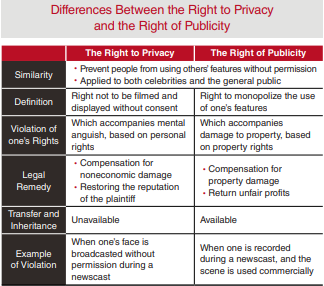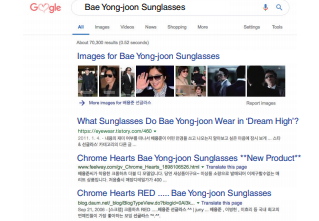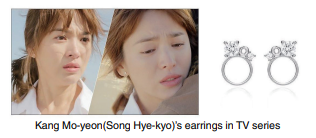The Korean TV series SKY Castle recently ended with 23.7% viewing ratings. Due to its popularity, lots of parody advertisements are being broadcasted. The public, however, has criticized them for attaining profits although not hiring the real actors. Instead, different actors dress up like characters in the series or drawings of similar scenes from the series appear on advertisements. Indiscreet parody is against the rules of what is called the right of publicity, which causes a significant legal conflict in the entertainment business. Therefore, the Sungkyun Times (SKT) now looks through what the right of publicity is, the problems of the right of publicity in Korea, and a way to move forward.
What is the right of publicity?
Definition and History of the Right of Publicity
The right of publicity is a right that protects the property value of one’s characteristics, such as name, face, and voice, from others to use or control them commercially without permission. In other words, someone can be legally punished if they use a celebrity’s unique features commercially without permission. This includes using celebrities’ photos in advertisements and promotions, and making goods with caricatures of them.

However, it is excusable if they are used for the purpose of artistic expression or factual reporting. The right of publicity first appeared in the United States (US) around 1953. Until the middle of the 1900s, the right to privacy was enough to protect one’s portraits. It, however, was not able to preserve commercial profits as new markets, such as advertisements, movies, TV, and videos, appeared. Since the right to privacy focuses on a civil right which has no power in commercial issues, the US Courts enacted a new rule and named it the right of publicity. Similarly, Japan also applied the right of publicity from 1976, and finally provided an official Japanese name for the right in 2012. Canada also follows the right of publicity even after death, but it is depending on provincial laws. For instance, a legal dispute between Marilyn Monroe’s inheritors’ firm and a clothing company is a well-known example. When artists parodied one of Marilyn’s photos for their stages, there was no issue. Inheritors, however, sued several companies for printing her picture on their T-shirts. The court judged that Marilyn could claim the right if she was alive. The protection period, however, had expired after her death, and the inheritors could not insist on the right of publicity.

Controversies Among the Right of Publicity in Korea
The Right of Publicity in Korea In South Korea, there is no law or Supreme Court precedent regading the right of publicity. Therefore, a law to protect that recognizes the right of publicity is not formally established. Several lower court decisions, however, has implicitly recognized the right of publicity. For instance, 56 celebrities, ncluding Bae Yong-joon and Kim Nam-gil, sued online shopping malls as they put keyword advertisements using their name. The shopping malls promoted themselves as if the celebrities used their products.

The court said that as more and more commercials use celebrities’ names and faces without their permissions, the need for the right of publicity was acceptable. In contrast, as any laws regarding the right of publicity are not legislated, the range of protection of the rights of publicity is limited in a court and even judges are confused.
Limited Protection
Even if a Korean court recognizes the right of publicity provisionally, the range of protection is minimal. There are examples which recognize the right of publicity regarding names and faces, but not voices or other features. As other features apart from names or faces are invisible, it is hard to identify whether the profits come from those particular features. Singer Park Sang-min once sued a person who imitated him and earned money by holding a concert, but got a partial win on the case. The court insisted that the visual characteristics could be confused, but barely recognized the impersonator as Park Sang-min with the voice. On the other hand, in the US, the right of publicity is applied in a broader range, which includes voice and specific objects that represent celebrities. For instance, a court admitted that Ford’s advertising agency violated the right of publicity by imitating Bette Midler’s voice on their television advertisements.
Confusion Between the Right to Privacy and the Right of Publicity in a Real Court
As there is no set definition or guideline for the right of publicity in Korean law, the standards of judgement are ambiguous. This result in confusion between the right to privacy and the rights of publicity in a court. Although it is the same or similar case, the result can be completely different based on whether judges focus on violation of one’s personal rights or property rights on. For instance, two different plastic surgery hospitals have been sued for using photographs of actress Min Hyo-rin and Kim Sun-a on their blogs as if they did the surgery in their hospitals. In the Min Hyo-rin case, a court decided that her right to privacy was violated, but not the right of publicity as the court focused on her psychological damage. On the other hand, in the Kim Sun-a case, a court admitted both rights of privacy and publicity, because it focused on property rights, and decided that she had suffered both mentally and financially. The legislature should set up legal evidences such as requirements, transferability, inheritance, protection and duration of the right of publicity for clear judgement.
Implications of the Right of Publicity in Korea
Need to Legalize the Right of Publicity
In the short term, the introduction of regulations is required in order to solve the problems caused by legal uncertainty. There are sufficient reasons to recognize an independent right, because most countries including the US, Germany, and Japan, protect them by law. The need to protect the rights is increasing in the modern society, where celebrities’ economic value is worth protecting as celebrities achieve fame, social evaluation, and power of influence through their own efforts. Moreover, some particular industries, which use celebrities’ features commercially, have emerged. For instance, many shopping malls use a famous people’s name without permission, like a Song Hye-kyo necklace or a Suzy hat. It is necessary to protect their property value. It will not only protect property value of celebrities, but also support the development of a cultural industry by making related laws.

Enactment of the Special Law
Among legal experts, enacting a special law for the right of publicity is the dominant opinion, as limitations exist when the law is formed based on copyright law or civil law. When the right of publicity is formed based on copyright law, the definition of the term “work” which has property value is not just limited to one’s creations but is also expanded to one’s face, name, and voice. Copyright, however, is unable to be transferred, which causes a contradiction with the right of publicity which has transferable characteristics of property rights. On the other hand, setting up the right of publicity based on civil law is also unsuitable. The right of publicity shares some of the characteristics with real rights, a part of civil law. Real rights refer to attaining profits through ownership. According to civil law, however, real rights cannot be enacted just through the reason that they are needed. Moreover, it is conventionally undesirable to write the foreign word the right of publicity in civil law conventionally. Therefore, although civil law can describe the right in a sentence that “one has the right to be protected from unpermitted commercial use of names, portraits, and other personal features”, it will be hard to act in a real court. Although lower instance courts can admit it provisionally based on civil law, it might be difficult to be acknowledged in the Supreme Court without a name of the right, which may lead to unclear judgement. In Korea, legalization of the right of publicity has been tried many times. Attempts to enact a law regarding the right of publicity started in 2005. Additionally, from the 17th National Assembly to the 20th in the last year, the necessity of recognizing the right of publicity has been mentioned in every National Assembly. Moreover, despite the small number, the right of publicity has also been dealt with several times in a petition from the people. Enacting special laws regarding the right of publicity would help to reduce judges’ confusion and to protect celebrities’ rights.
As individuals’ sense of rights and celebrities’ commercial values have been developed, and media which can deliver one’s message is diversified, controversy against the reorganization of the right of publicity is inevitable. Therefore, forming legal evidence about the right of publicity has to be consistently discussed. Based on this, Korea judiciary should eventually recognize the right of publicity.
